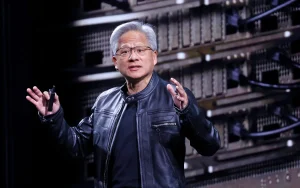Inside Harvey: How a First-Year Lawyer Launched a Thriving Silicon Valley Startup
Image Credits:Harvey
The Rise of Harvey: Transforming Legal AI
Captivating Investors
In a realm that may not immediately seem alluring, Legal AI has become a hot topic in Silicon Valley, particularly through the lens of Harvey, founded by CEO Winston Weinberg. Garnering significant attention from major investors, Harvey’s capital table reads like a roll call of premier venture capital firms, including the OpenAI Startup Fund (its initial institutional backer), Sequoia Capital, Kleiner Perkins, Elad Gil, Google Ventures, Coatue, and Andreessen Horowitz.
The San Francisco-based startup has seen its valuation soar from $3 billion in February 2025 to $5 billion by June, and eventually to $8 billion by October. This meteoric rise not only reflects the escalating valuations in the AI sector but also underscores Harvey’s success in winning over top law firms and corporate legal departments.
Expansive Client Base
Harvey boasts an impressive roster of 700 clients spanning 63 countries, including most of the top 10 law firms in the U.S., and surpassed $100 million in annual recurring revenue as of August. In a conversation with TechCrunch for the StrictlyVC Download podcast, Weinberg shared insights about the dynamic journey he embarked on with co-founder Gabe Pereyra. From the intriguing inception of a cold email to Sam Altman to exploring how AI can aid lawyers rather than hinder them, Harvey represents a significant leap in the legal landscape.
Discovering AI’s Potential in Law
Weinberg’s journey began as a first-year associate at O’Melveny & Myers, where his co-founder was working at Meta. Together, they experimented with GPT-3, initially utilizing it for a Dungeons and Dragons game, before applying its capabilities to real-world legal cases. By employing innovative chain-of-thought prompting techniques on landlord-tenant law, they provided question-answer pairs that 86 out of 100 attorney reviewers deemed satisfactory without edits. This experience confirmed their belief that AI could revolutionize the legal industry.
Building Strong Connections
Following their breakthrough, Weinberg and Pereyra reached out to OpenAI’s general counsel directly. Their pitch resonated, resulting in a swift investment from the OpenAI Startup Fund, which introduced them to pivotal figures like Sarah Guo and Elad Gil. As first-time fundraisers lacking a tech background, they relied heavily on their company’s inherent strengths and market viability to attract investments.
Strategic Fundraising Approach
Weinberg’s perspective on fundraising diverges from conventional networking strategies. He emphasizes that the core focus should be on building a robust business—99% of the time dedicated to the company’s performance, with just a fraction spent identifying potential partners.
Revenue Insights
By August, Harvey celebrated surpassing $100 million in ARR, yet the company faces challenges in terms of operational costs. With a staff of around 400 employees, compute costs remain a hurdle, especially given stringent data residency laws across the 60 countries in which the company operates. Despite promising margins per token, upfront compute expenditures in diverse jurisdictions dampen overall profitability.
Global Expansion Strategy
Initially, Harvey’s revenue composition was overwhelmingly reliant on law firms, with 96% stemming from that sector. However, this year marks a pivot; corporate revenue has grown to 33% and is projected to hit 40% by year-end. The startup began by analyzing public litigation briefs and leveraging collaborative opportunities with law firms to pitch to corporate clients, facilitating a unique partnership dynamic.
Navigating Complex Challenges
Weinberg describes their platform as “multiplayer,” addressing the critical dual-layered challenge of permissioning—managing access both internally and externally. Ethical walls that protect client confidentiality require sophisticated solutions, particularly in scenarios involving multiple clients whose interests may conflict. Harvey is actively developing solutions to confront these challenges, with plans for an initial scale launch by December.
Utilizing Harvey in Legal Work
Currently, legal professionals primarily employ Harvey for three key functions: drafting, research, and analyzing. Initial use cases mostly revolved around M&A and fund formation. However, as data availability increases, litigation applications are becoming more prominent.
Beyond the ChatGPT Wrapper
Critics often dismiss Harvey as merely a ChatGPT wrapper, but Weinberg argues that the platform’s advantages extend far beyond. Harvey continually gathers extensive workflow data, creating a unique moat that is difficult to replicate. As systems involve intricate evaluations, building a true multiplayer platform that fits seamlessly between service providers and clients is an uncharted goal for most competitors.
Business Model and Future Plans
Harvey currently operates on a seat-based pricing model but is transitioning towards outcome-based pricing. This dual approach allows for both flexibility and the necessity of including human oversight in more complex matters. In the upcoming years, Harvey aims to develop more nuanced consumption-based workflows as AI capabilities advance.
Despite low penetration rates in the legal field—with only a small percentage of the 8 to 9 million global lawyers currently using Harvey—the potential for future growth remains extensive. As legal AI sophistication evolves, the ROI for legal entities using Harvey is becoming evident.
The Future of Junior Lawyers
Weinberg remains acutely aware of the seismic shifts impacting junior associates in law. His ambition is to expedite the training process for aspiring partners and optimize workflows within law firms. He envisions a future where these AI systems operate as insightful mentors to junior lawyers, fostering immediate feedback and nurturing their legal acumen.
Looking Ahead
As Harvey continues to flourish — rapidly increasing its valuation from $3 billion to $8 billion in under a year — Weinberg’s focus remains steadfast. For now, large fundraising rounds are not on the horizon, as the company prepares for potential future research initiatives requiring extensive compute resources. While the exact timeline for entering public markets is unclear, long-term aspirations are firmly set.
In essence, Harvey is not just shaping the future of legal work; it is redefining the benchmarks of operational excellence in law.
Thanks for reading. Please let us know your thoughts and ideas in the comment section down below.
Source link
#Harvey #firstyear #legal #associate #built #Silicon #Valleys #hottest #startups





